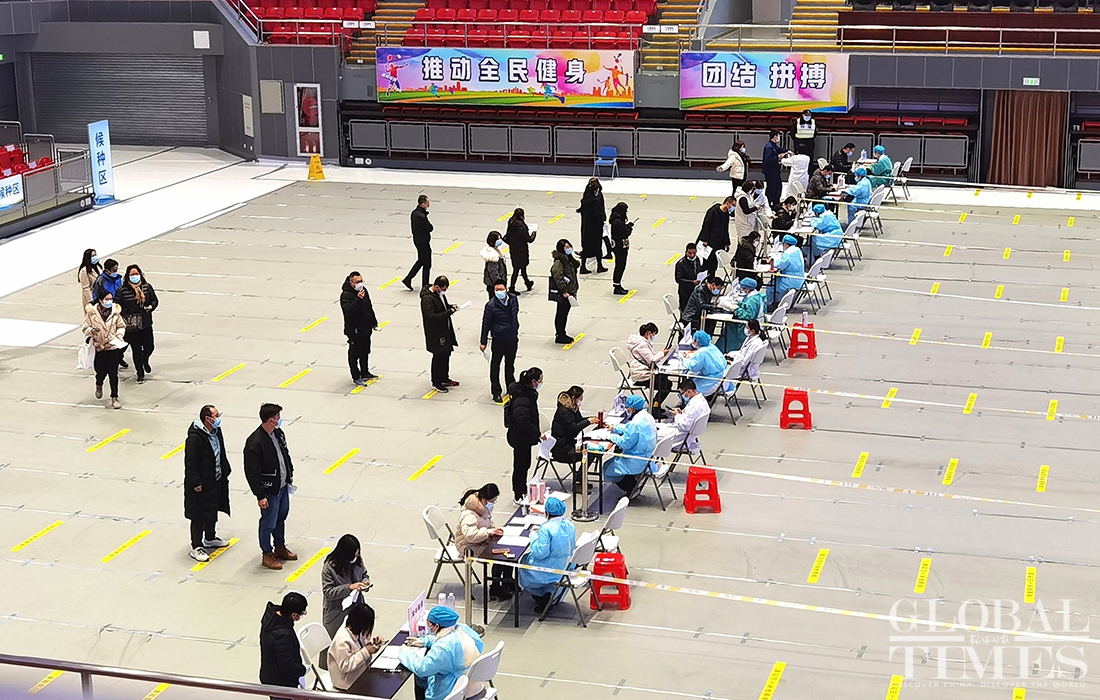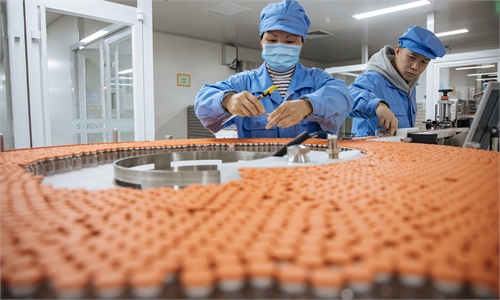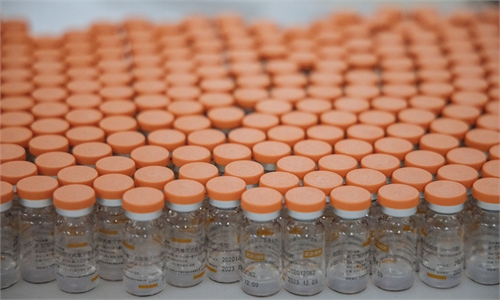326,000 people receive COVID-19 vaccines in Shanghai; Chinese vaccines effective for virus variants

Prioritized residents receive COVID-19 vaccines at an inoculation site in Shanghai. Photo: Yang Hui/GT
Shanghai on Wednesday announced that permanent residents and those with household registration in the city who plan to work or study abroad for personal reasons before February 12 can book an appointment to receive free COVID-19 emergency vaccines. The city's expats are not included in the scheme yet.
As of Monday, 326,000 people from key groups have received COVID-19 vaccines for emergency use in Shanghai, including personnel at the airport, ports, border control, cold-chain food industry, and medical workers, public security officers, firefighters and community workers, according to the Shanghai municipal government. No serious abnormalities have been reported based on the monitoring data.
Tests on COVID-19 variants and virus strains from the US, UK, Russia and Austria showed that the specific antibodies of inactivated vaccines could still be recognized; that is, the vaccines will still be effective against those viruses, the Shanghai municipal government announced on Wednesday.
The inoculation scheme has been carried out in three stages, the city government said. The first phase, preparation and related investigation, was completed before December 31; high-risk persons were administrated their first dose. In phase two, all relevant personnel received their first dose before January 15. All related personnel will receive their second dose before February 5.
Antibodies generally begin seven days after the first dose of the vaccine is administered, and the antibody positive rate is about 60%-90% around 14-28 days later; the same rate reaches over 90% around 28 days after the second dose, and continuous protection will be formed afterwards, the government said via Shanghai Fabu, its official social media account on Wednesday.
Since COVID-19 was only discovered last year, the durability of the inactivated vaccine is still under observation; however, current data suggests that the vaccine protection period can reach at least half a year.
The city has adopted domestic inactivated vaccines, which are eligible for population between 18 to 59 years old.
Residents will take two shots, with at least a 14-day interval, which will be administered to the upper arm deltoid muscle. Residents will not test positive for the coronavirus after they are vaccinated.


